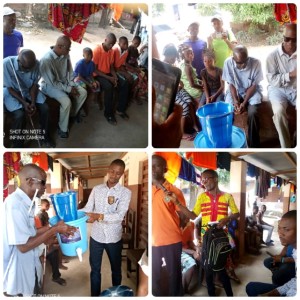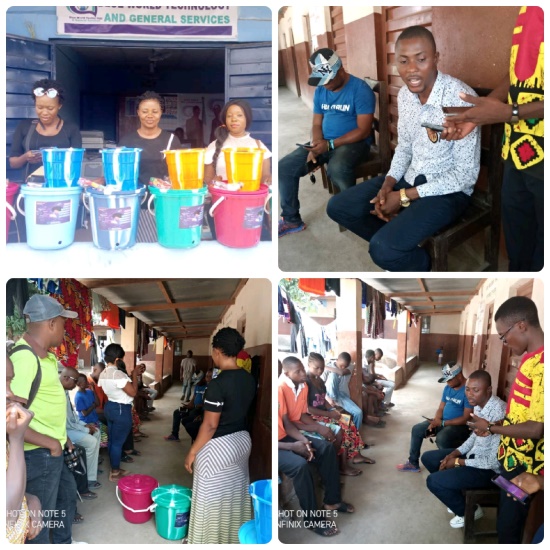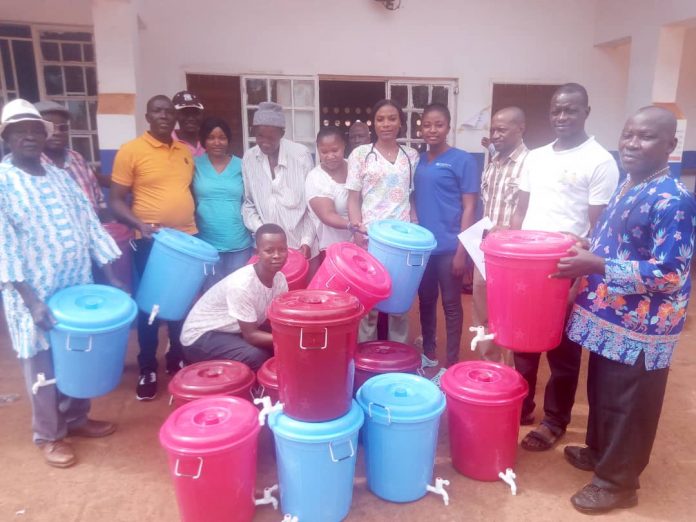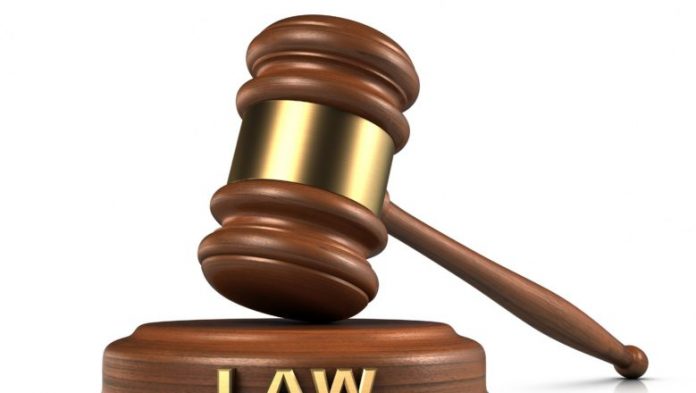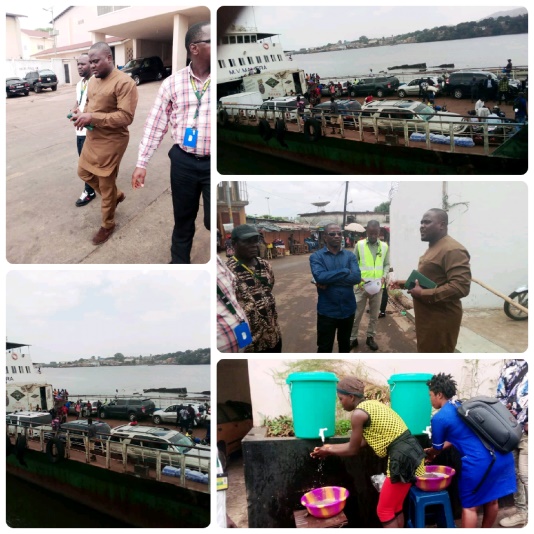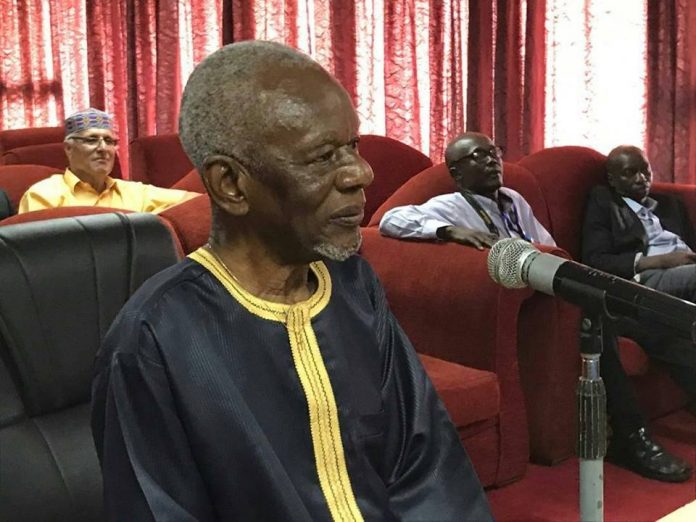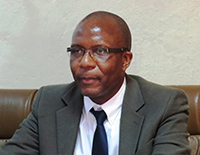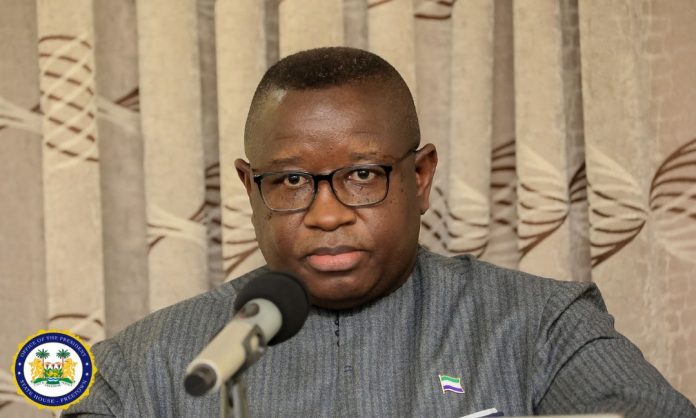By Brima Sannoh
The Court of Appeal of England and Wales has upheld the High Court’s verdict in Kadie Kalma & ors v African Minerals Ltd & ors [2020] EWCA Civ 144. This is an important case for businesses exposed to human rights risks through their reliance on third parties, particularly state security forces, in relation to their operations abroad. The finding in this appeal confirms the limits on the circumstances in which a company can be held liable for harms caused by such third parties.
The claims were brought by 142 individuals who alleged that they had been harmed by the Sierra Leonean Police (SLP) during two major outbreaks of unrest and violence connected to the defendants’ iron ore mine. The incidents involved beatings, shootings, robbery, sexual assault and one death. Although the acts alleged took place on Sierra Leonean soil, the English court agreed to hear the case because the actual iron ore producer (the third defendant, Tonkolili Iron Ore Limited) was previously a subsidiary of African Minerals Ltd (AML), which had its head office in London before going into administration in 2015. At first instance, the High Court found that AML and its co-defendants were not liable for the acts of the SLP. In a wide-ranging judgment, the Court of Appeal upheld the High Court’s verdict.
At trial, the claimants sought to argue that AML could be held responsible for the actions of the SLP on the basis that AML: (a) was vicariously liable for those actions; (b) should be regarded as an accessory in furtherance of a “common design” with the SLP; (c) procured the SLP to commit the tortious acts; (d) breached a duty of care in failing to prevent the SLP from committing those acts; and/or (e) breached a non-delegable duty in respect of an “extra-hazardous” activity carried out by the SLP.
All of these claims were rejected by the judge at first instance (Turner J.). In particular, he rejected the vicarious liability argument on the basis that, amongst other things, the relationship between AML and the SLP personnel was not akin to a “quasi-employment” relationship. Moreover, it made little sense to find that both AML and the SLP shared “dual vicarious liability” for the acts of the SLP’s personnel.
African Minerals criticized for failure to follow Voluntary Principles on Security and Human Rights
However, the judge did find that, had AML owed a duty of care, it would have breached that duty in at least some of the respects alleged by the claimants. In particular, the judge criticized AML for having failed to follow the “recognized minimum standards” set out in the Voluntary Principles on Security and Human Rights (VPs) to reduce the risk of human rights abuses in communities located near the mine site. Specifically, as recommended by the VPs, AML should have carried out a security and human rights risk assessment, had in place a crisis management plan, engaged more with the SLP, and taken further steps to reduce the risk of the SLP using excessive force and mistreating people.
The appeal was limited to only two of the original heads of claim in the case, namely:
- whether the respondents were liable as accessories to the torts committed by the SLP, on the basis that they had acted in furtherance of a common tortious design with the police; and
- whether the respondents had negligently breached a duty of care to the appellants in failing to take adequate steps to prevent the SLP from harming the appellants.
Accessory liability requires proof that the defendant acted in a way which furthered the commission of a tort by a third party, and did so in pursuance of a common design to do or secure the doing of the acts which constituted the tort (Fish & Fish v Sea Shepheard [2015] AC 1229). The appellants’ case was that the respondents were accessories to the acts of the SLP (the beatings, shootings, robbery, sexual assault and killing) pursuant to a common design to suppress protests and disruption around the mine through unlawful means.
The judge at first instance made a finding of fact that (i) AML’s employees did not instigate, direct, counsel or procure the unlawful actions of the SLP and (ii) AML’s employees did not intend that there should be any such unlawful actions. It followed that there was no common design between the defendants and the SLP that the SLP should use unlawful means to suppress the protests.
On appeal, the appellants argued that it should be inferred from the respondents’ provision of resources (money, food, transport, accommodation, etc.) to the SLP, and the fact the respondents could foresee that the SLP might use excessive force, that the respondents intended that the police suppress any protests which arose, if need be, by excessive force. This inferred and conditional intention that the SLP should use excessive force ‘if need be’ was said to be sufficient to demonstrate common design.
The Court of Appeal rejected this position. It noted the first instance judge’s findings that it was necessary for AML to provide material and financial support to the local police force in order to enable them to protect mine personnel and property. To the extent that any intention could be inferred, it was “much more likely” that the resources were intended to assist the police in keeping the peace rather than to assist them in using unlawful means to suppress protests.
Further, the fact that it was foreseeable that the SLP might use excessive force did not mean that this was the respondents’ intention. Significantly (and helpfully for companies operating in potentially dangerous locations), the court noted that it is a matter of “common sense” that someone who calls on and helps the police to uphold law and order should not be liable for their actions “simply because it is foreseeable that the police might use excessive force to achieve that result”: it is precisely in those scenarios where over-reaction is foreseeable that police assistance may be most needed.
The Court drew a distinction between common design and the situation where a party gives assistance to a wrongdoer knowing that the wrongdoer intends to commit the wrong in question. Such ‘knowing assistance’ would be sufficient to impose liability under the criminal law or in equity, but it would not be enough to make the assisting party liable in tort.
The appellants’ challenged several aspects of the High Court’s decision that AML did not owe the claimants a duty of care in relation to the actions of the SLP. Specifically, they challenged the (factual) findings: (i) that AML’s involvement in events should be characterized as ‘pure omissions’, rather than a combination of omission and positive acts; and (ii) that AML did not create a dangerous situation. Again, the Court of Appeal dismissed these aspects of the appeal.
Ordinarily, a party will not be held liable for failing to take steps to prevent criminal acts by a third party as liability will not normally be imposed solely for omissions. The appellants argued that the High Court had been wrong to treat this case as one of ‘pure omissions’. The respondents themselves had also taken actions (such as providing money, vehicles and equipment) which had caused or contributed to the SLP’s harmful conduct, according to the appellants.
The Court of Appeal and the judge below rejected this as “an attempt to build a Trojan horse” by which otherwise bare omissions could be brought within the parameters of a duty of care. They found that the underlying complaint was about an omission – the failure to prevent the appellants from being harmed by the SLP – and the fact that the respondents took some other related actions which in themselves were alleged to be breaches of a duty of care did not change the fundamental nature of the claim. Liability would not attach to omissions, unless an exception to the rule applied.
An exception to the rule arises where the defendant creates a source of danger that would not otherwise have existed. The appellants alleged that the respondents’ provision of resources to the SLP created such a source of danger.
The Court of Appeal disagreed, basing its finding on the same principle discussed above: that a defendant should not become liable for the acts of the police by dint of having called on them to perform their role and provided support for them to do so. The Court quoted with approval the High Court judge’s finding that it was the SLP who had created the danger and carried out the violence: “their over-reaction was the result of ‘fear, ill-discipline, anger and testosterone’ amongst the SLP on the ground”. The defendants had not created the danger by providing money, vehicles and accommodation; indeed, “without them, the situation might well have been worse”. Thus, the ordinary rule applied and the respondents could not be held liable for the harm that eventuated.
The appellants had argued that, if the case did not fall into the category of ‘pure omission’, then the Court could consider whether the respondents had a ‘freestanding’ duty of care. Having found that the case was one of pure omission, the Court did not need to go on to consider this issue, but did so nonetheless. It applied the so-called ‘Caparo duty of care test’ to assess whether the damage was foreseeable, there was a proximate relationship, and the imposition of the duty was fair, just and reasonable in this case. It found that the damage was foreseeable, but that the other two elements of the Caparo test had not been established.
First, there was insufficient proximity between the appellants and the respondents, since the appellants were not a clearly-identifiable class or group and most of them had no direct connection with the respondents (representatives of whom, it was noted, were largely absent from events). The fact that the respondents had provided resources to the SLP did not point to proximity between the respondents and the SLP or between the respondents and the appellants: the arrangement was one of necessity, without which the SLP might not have been present at all. Adopting the words of caution that are often used in this context, the Court was reluctant to find a duty which could result in the respondents “owing an indeterminate liability to an indeterminate class of people”.
Second, it was not fair, just or reasonable to impose a duty of care on the respondents for the criminal acts of the SLP. They had called on the SLP to protect them, had provided reasonable and proportionate assistance for them to do so and had not been involved in the unlawful acts which followed.
Moreover, contrary to the appellants’ suggestion, it was not consistent with the VPs to impose a duty of care on the respondents. The Court found that there was nothing in those principles to suggest that companies operating abroad should be made generally liable for the unlawful acts of the police in their host countries. Indeed, the Court observed, the VPs “are drafted on the basis that, whilst companies operating abroad may properly help to facilitate the law and order expected to be provided by host countries, it is the governments of those countries (and not the companies) who have “the primary responsibility to promote and protect human rights.””
The Court of Appeal noted that the judge at first instance, Turner J, had been faced with a vast amount of material on which to found his judgment. This included a 24-day trial (of which seven days were held in Freetown, Sierra Leone) featuring 67 witnesses, and written closing submissions of over 400 pages.
Although the appellants asserted that they were not challenging Turner J’s findings of fact, the Court of Appeal remarked that they “repeatedly came close to, and often crossed, the clear boundary as to what can and cannot be argued on an appeal of this sort”. The court confirmed that it would only interfere with a finding of fact where that finding is “critical” and “has no basis in the evidence, or is based on a demonstrable misunderstanding of relevant evidence, or a failure to consider such evidence”, or where the judge’s decision “cannot reasonably be explained or justified”. None of those criteria were met in this case.
This judgment helps clarify two difficult areas of the law on tortious liability for the acts of third parties.
First, it clarifies the boundaries of the law on common design. It confirms that merely relying on or providing assistance to a party that commits an intentional tort, even where the tort is foreseeable, does not mean that there was a shared intent and a common design with the tortfeasor. In this case, just asking for the assistance of police due to a difficult security situation, and providing assistance where necessary to allow the police to do their job, did not mean that the company intended or had a common design with the SLP to act illegally.
Secondly, the judgment helped clarify the law on duty of care in relation to (i) what constitutes ‘pure omissions’, (ii) what qualifies as the ‘creation of a source of danger’ and (iii) the application of the Caparo test to harm caused by third parties. It is notable that, in reaching this conclusion, the judgment took a different approach to that of the UK Supreme Court in Vedanta Resources PLC and another v Lungowe and others [2019] UKSC 20, which considered the potential liability of English parent companies in relation to the activities of (potentially foreign) subsidiaries. There, the Supreme Court confirmed that whether a parent company had assumed such a duty of care depends on the extent to which, and the way in which, the parent has in fact availed itself of the opportunity to take over, intervene in, control, supervise or advise the management of the relevant operations of the subsidiary. It referred to materials published by Vedanta in which “Vedanta might fairly be said to have asserted its own assumption of responsibility for the maintenance of proper standards of environmental control” by its subsidiaries, which, together with the implementation of those standards by training, monitoring and enforcement, suggested to the Court that it was at least arguable that a duty of care was owed.
However, the Supreme Court also commented that the liability of parent companies in relation to the activities of their subsidiaries was “…not, of itself, a distinct category of liability in common law negligence”. That comment has led to speculation that the same test for duty of care, based on factors such as level of control and statements in policies, could be applied to determine whether a duty of care was owed in relation to the activities of third parties who were not subsidiaries, including counterparties such as suppliers and potentially even security forces. However, the Court of Appeal in African Minerals did not even mention, let alone apply, the Supreme Court’s decision in Vedanta, instead relying on the separate line of case law confirming that there is generally no duty of care to prevent harm caused by third parties. This may be because the relationship between the company and the SLP was so completely different from that of Vedanta and its subsidiary that there was no basis to even try and argue that there was a similar level of control or supervision.
The African Minerals judgment will provide significant comfort to businesses with operations abroad who rely on public security forces to protect their operations. Simply requesting the assistance of such security forces, even if they have used excessive force in the past, should not in itself result in liability for the actions of those forces. Furthermore, these companies now know that a public commitment to the VPs and the adoption of measures recommended by the VPs, such as support for the training of state security forces on human rights, should also not (by themselves) amount to the assumption of a duty of care to prevent harm by those same state security forces.
However, we urge these companies not to read the African Minerals judgment as suggesting that they should publically commit to the VPs for an easy public relations win, without needing to do anything to implement them. Such ‘green-washing’ would be the wrong approach for two reasons.
First, while the English Court of Appeal declined to recognise accessory liability or impose a legal duty of care with respect to the actions of state security forces in this case, its inquiry was fact-specific in some respects. The African Minerals judgment does not entirely rule out the possibility that, on different facts, a company could share responsibility with public security forces for tortious acts: for example, if a ‘rogue’ employee was directly involved in those acts.
Secondly, even if there is no accessory liability or legal duty of care in tort with respect to the actions of state security forces, a company linked to human rights violations by security forces can still face serious legal, financial and reputational consequences. Association with human rights violations can make projects unbankable, generate disruptive hostility on the part of communities, and drive away customers, investors and business partners. As the VPs themselves emphasise, “companies have an interest in ensuring that actions taken by governments, particularly the actions of public security providers, are consistent with the protection and promotion of human rights”.
The VPs provide a toolkit for companies to develop and implement policies and practices that encourage host state security forces to provide law and order with respect for human rights. The VPs Secretariat plausibly claims that companies that implement the VPs – which call for security and human rights risk assessments, consultations and communications with security forces about human rights, and human rights training for security forces, among other things – are more likely to spot warning signs and be prepared to avoid involvement in human rights violations by security forces. They are, therefore, more likely to avoid lawsuits, which is of course the best legal position for companies and the best outcome for communities. If a lawsuit is brought, a company that can demonstrate adherence with the VPs is likely to be in a strong position to prove that it has not breached any legal duties.
The African Minerals judgment should encourage more enlightened and risk-averse companies to endorse the VPs or other corporate responsibility standards, and put into place the policies and programmes necessary to implement them in an effective way.

